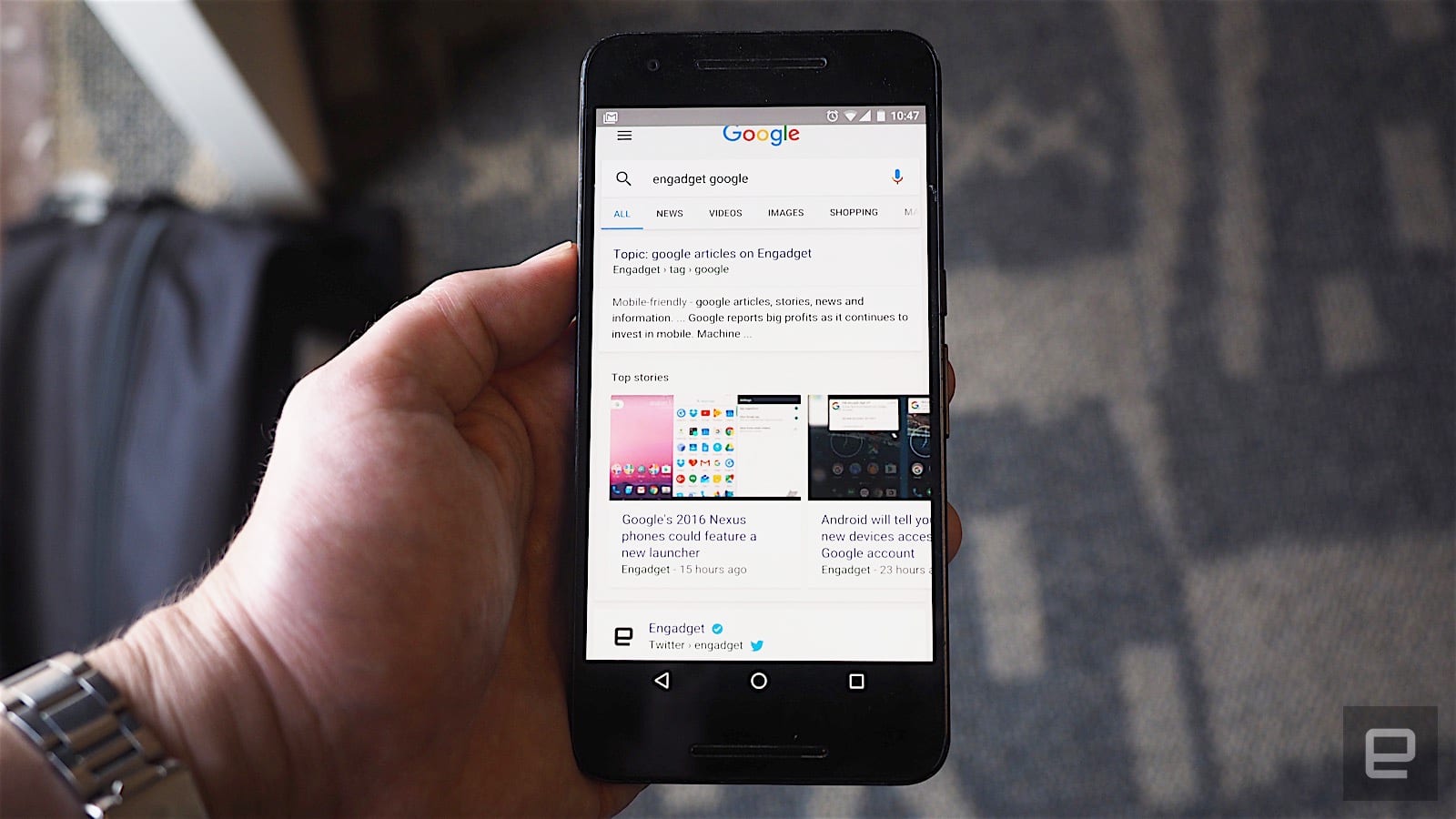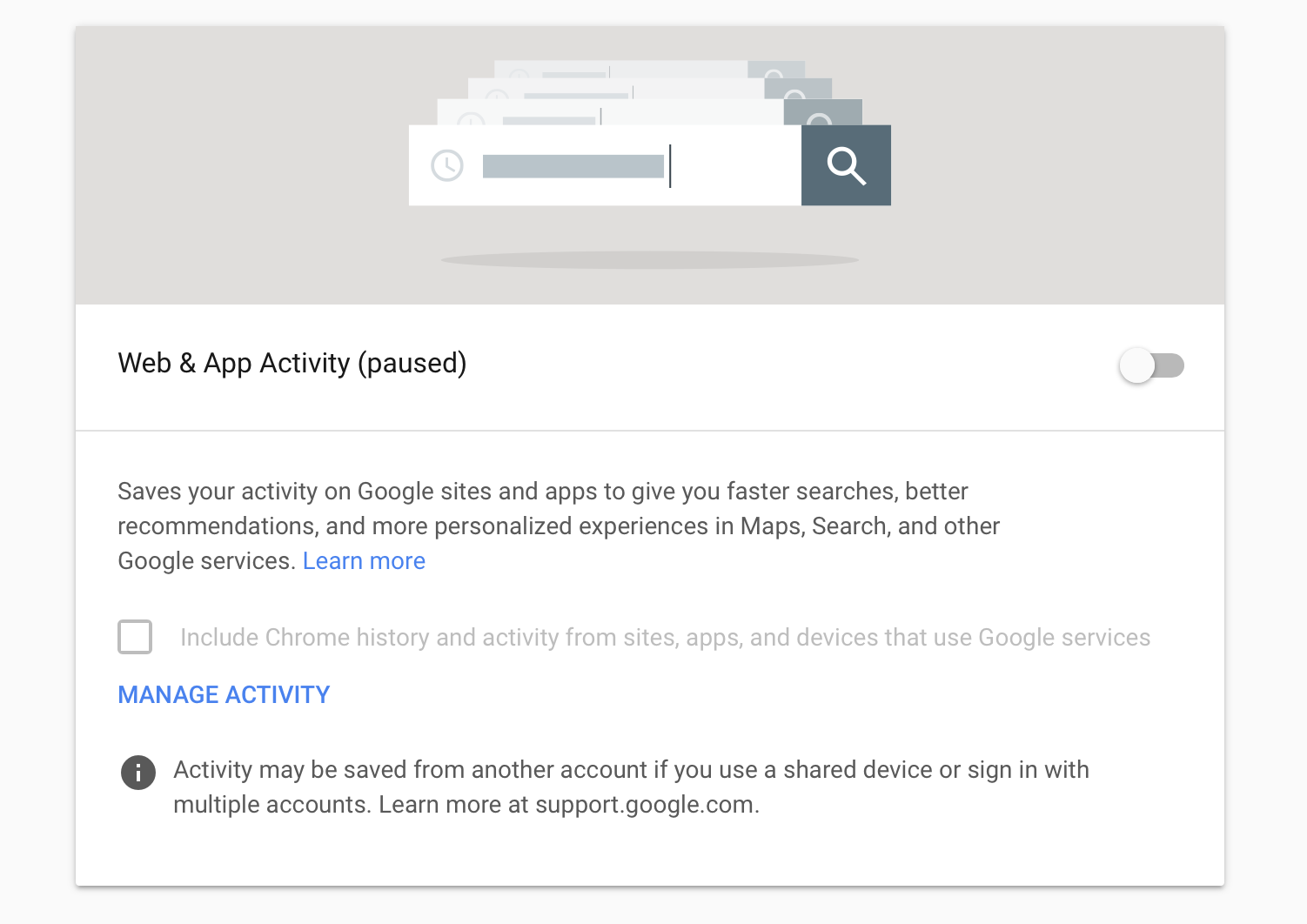 Earlier today, the Associated Press published a report detailing how Google can log users' locations even if they've opted out of the company's Location History feature. The report indicated that if you want to entirely opt out of Google location tracking, you'll need to access and opt out of a second feature as well, one called "Web & App History." Before getting into the details, here's a statement Google provided the AP (the company had not responded to our requests for comment as of publication time): "There are a number of different ways that Google may use location to improve people's experience, including: Location History, Web and App Activity, and through device-level Location Services. We provide clear descriptions of these tools, and robust controls so people can turn them on or off, and delete their histories at any time." The Verge received a similar statement, but one that says "we make sure Location History users know that when they disable the product, we continue to use location to improve the Google experience when they do things like perform a Google search or use Google for driving directions." That last phrase appears to be referring to Web & App history, though Google wasn't clear on that. If indeed you want to turn off all location tracking, it'll take a bit of work. For starters, you'll definitely want to disable the Location History feature. Despite it's broad-sounding name, that's a very specific feature that creates a timeline of where you've been based on your mobile phone location. While you might have assumed turning that off would disable Google location-tracking across all its services, that isn't the case. After disabling Location History, turn off "Web & App History" -- but note that your experience using Google's services will be significantly different going forward. For starters, none of your search history will be saved, anywhere. Some might find that useful, but in the case of products like Google Maps, it also makes things a little less user-friendly. The app won't have visibility into past searches you've made in Maps; it'll instead only show recent searches you've made on your phone itself. That also means that Maps won't know where you are when you look for directions in a browser. 
Overall, it seems that the primary location-gathering aspect related to "Web & App History" comes from Google searches. When that setting is turned on, Google can provide more "relevant" info. There's no doubt that having Google be aware of your location can be handy when you do a search, but if you truly want off the grid, make sure to disable this feature. It's worth noting that even after you've turned these location features off, Google results still might use your search history to make a guess about where you are. For example, searching for "pizza near me" was still pulling up results in my neighborhood, and it also knows where I am when I type in "weather." So, to erase your entire Google footprint, you'll want to go into the "My Activity" page where you can see everything you've done that touches Google services. Searches that grabbed your location will have the small location pin icon next to them; delete those to cover up your tracks. Finally, you'll also want to make sure you disable location services on your smartphone for any apps (Google or otherwise) that you don't want to access your location. You can see your Google history at myactivity.google.com; clicking on "activity controls" on the left-side menu will present options for disabling Web & App History as well as your Location History. I spent a lot of time digging through my history today and came away fairly unconcerned about the data Google had collected through my search history. It's far from a complete picture of where I've been, but I'm an iOS user. Something like the weather widget that's the default on all Pixel phones would be enough to give Google a pretty good map of your travels when Web & App Activity is turned on.
via Engadget RSS Feed https://ift.tt/2KPkXJn |
Comments
Post a Comment